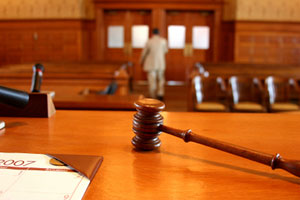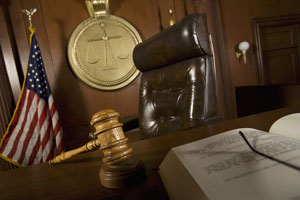Defense attorneys for a North Carolina man have asked a death penalty expert witness to submit a report to the trial judge which questions prosecutorial strategy in a murder trial. The case is an example of defense attorneys using an expert witness to cast doubt on prosecution witnesses who are offered deals in exchange for testimony against a lead defendant.
North Carolina Prosecutors Seek Accomplice Testimony in Murder Trial
Anthony Vinh Nguyen, 24, is on trial facing charges of first-degree murder, first-degree kidnapping, first-degree burglary and armed robbery in an incident which resulted in the death of Shelia Pace Gooden, 43, in October of 2013. Nguyen has been accused of shooting Gooden during a botched robbery attempt after he and two other men broke into her home and held her hostage in order to steal her $200 flat screen television. According to two accomplices, Nguyen fatally shot Gooden in the head during the robbery, but the defendant has maintained that he was not even with the two men that night and as such he did not take part in the robbery homicide.
Assistant District Attorneys Jennifer Martin and Ben White are the lead prosecutors in the case, and are asking for Nguyen to receive the death penalty if he is convicted. Nguyen’s two accomplices – Daniel Aaron Benson, 25, and Steve George Assimos, 24 – are also charged with first-degree murder, kidnapping, and burglary charges, however neither of them face the death penalty as both are likely to agree to testify against Nguyen in the upcoming trial.
Accomplices are frequently offered plea agreements in exchange for testimony against a co-defendant, but Nguyen’s defense attorneys – David Botchin and John Bryson – have called an expert witness to argue that the two men who claim Nguyen shot the victim are only saying what the DA is telling them to.
Expert Witness Report Questions Prosecutorial Strategy
Attorneys Botchin and Bryson have submitted papers indicating their intention to call Ernest L. Conner Jr., a criminal defense attorney, as an expert defense witness in death penalty cases and prosecutorial strategy. Connor submitted an affidavit to the court which explains that the focus of his expert testimony would be on the favorable treatment that the DA’s plan on giving Benson and Assimos, and how that treatment could unfairly influence their testimony against Nguyen. Although the prosecutors have not formally offered either man a plea deal in exchange for testimony, Connor has argued that the arrangement is likely.
Connor explained in his affidavit that the alleged accomplice testimony can still be influenced even if prosecutors have not offered plea agreements at this point in the proceedings. Connor, who has been involved with capital punishment litigation since 1992, dismissed the need for a specific deal for testimony by writing, “Since prosecutors must inform defense counsel of any formal plea offer, prosecutors often take advantage of an accomplice’s mere hope or expectation of leniency to be the motivating factor for the accomplice’s testimony.”
Further, according to Connor’s expert opinion, the fact that the DA’s have not sought capital charges against Benson and Assimos in the three years since the shooting “is an unspoken concession that implies lenient treatment is to come.” The prosecution has not formally objected to Connor’s proposed death penalty expert testimony, but will likely attempt to prevent him from testifying at trial.
Death Penalty Litigation Expert Testimony Faces Stiff Opposition
The proposed testimony by litigation expert Ernest Connor faces two primary hurdles during the pre-trial motion phase: first, prosecutors have not made any plea offer to either of Nguyen’s alleged accomplices, and second, the unusual expert testimony may not be permitted during trial. DA’s Martin and White have not talked about Connor’s proposed expert testimony directly, but have maintained that both Benson and Assimos have been cooperative from the start of the investigation and have not received plea agreements. Although Connor said that a lack of a deal was not important, the circumstances of the accomplice testimony may diminish his expert report.
The stiffer challenge which Nguyen’s defense team faces is whether Connor will be allowed to testify as a trial strategy expert witness at all. Expert witnesses walk a fine line between offering a permissible interpretation of facts and an impermissible opinion which could influence jurors, and Connor’s proposed testimony regarding the credibility of accomplice witnesses based on prosecutorial plea agreement strategy is squarely in a grey area. The case will proceed this week where prosecutors are likely to object to the defense’s proposed death penalty expert.













